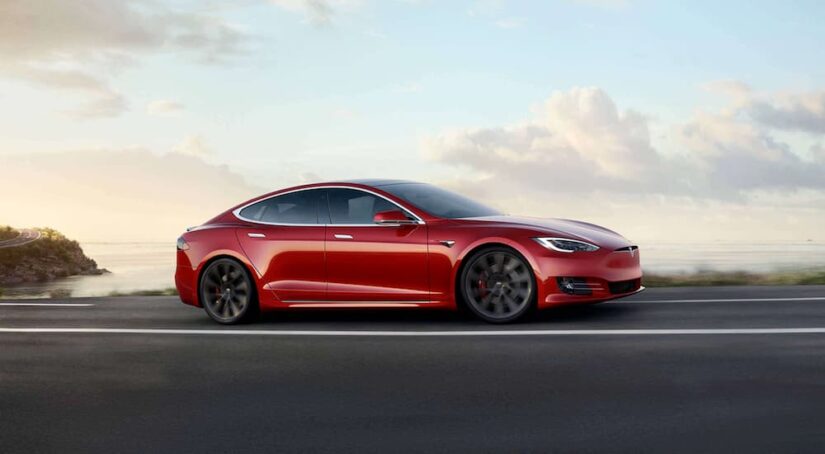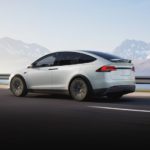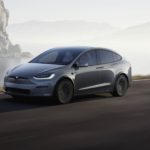When you go to buy a car from just about any automaker in the US, the first step is to find a dealership near you. The dealership will probably specialize in the lineup of a particular company, like Chevrolet or Ford, but it won’t be owned by the automaker. Dealerships are independently-owned franchises and act as middlemen between drivers and automakers. Even if you buy a car online and never set foot on a car lot, you’re almost certainly working through a dealership that will handle the sales and delivery and can take care of service down the line. This has been the predominant model for buying a vehicle in the US for well over a century now.
While the dealership model is still going strong, it’s no longer the only game in town. If you want to buy an EV from Tesla, then you may be able to find a brick-and-mortar store near you where you can look at models and talk to salespeople. But these stores aren’t like the traditional dealerships; they’re owned and operated directly by Tesla. What difference does this make to you as a driver? And what should you know before you consider buying a vehicle from Tesla or other EV start-ups, like Rivian and Lucid, which have followed in its footsteps? Let’s take a look at this new wave of direct-to-consumer sales and see what its pros and cons are.
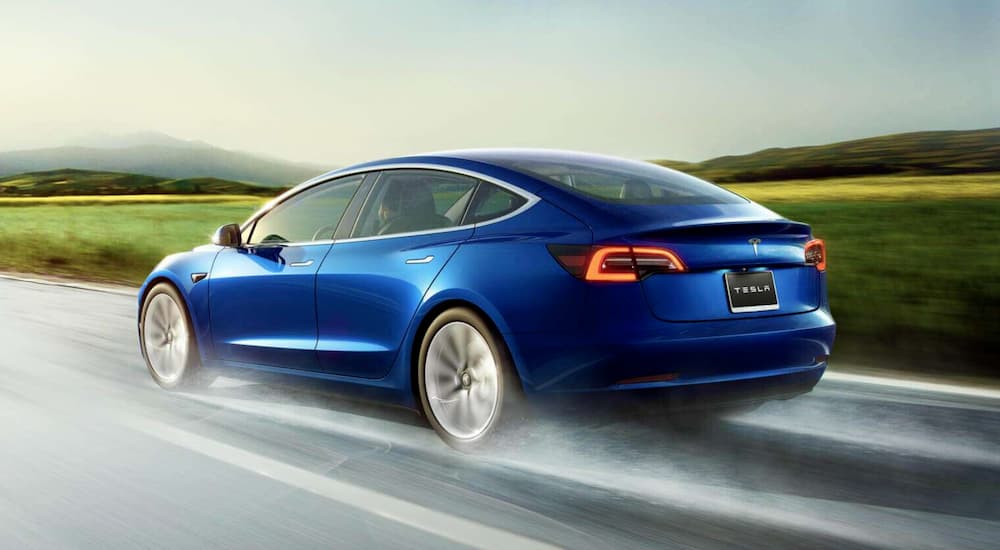
Why Is Tesla Different?
There are a few different reasons why Tesla chose to pursue this unique model of selling cars. Getting space for in-person locations, building them, and staffing them is a big investment––especially for a brand-new manufacturer that desperately needed money to build factories and design new vehicles. However, Tesla was more worried about what it saw as competitive disadvantages under the traditional dealership system.
While dealerships usually work hard to frame themselves as small family establishments, they are generally much bigger businesses than they seem. There are plenty of auto groups that own multiple dealerships, each offering models from a different automaker. This could present a conflict of interest if the people operating a Tesla dealership make most of their money selling gas-powered vehicles. Back in 2012, Tesla released a statement where it claimed that “It is impossible for [dealerships] to explain the advantages of going electric without simultaneously undermining their traditional business.”
On top of that, Tesla’s strategy also worked to introduce the new brand to potential customers. Drivers don’t typically go to a traditional dealership location until they already know that they’re going to buy a car, and often they’ve already decided what model they’re interested in. But Tesla stores have popped up in places like shopping malls and busy streets, where people might get curious about the brand and stop in on a whim.
Of course, there’s also the matter of control. With the direct-to-consumer model, Tesla has control over everything from sticker prices to contract terms to service centers. This has the potential to be a good thing for customers since they don’t have to deal with any middlemen trying to make an extra buck. But it also means that Tesla customers only have one option when it comes to sales and service. If you’re interested in the product but don’t like the company’s service, then too bad; you’re out of luck.
Legality Issues
When Tesla first decided to change the way it sold its vehicles, the biggest issue wasn’t consumer habits or construction costs: it was the law. Car sales are regulated by state and local laws throughout the country, but when Tesla first hit the market in 2008, one thing that was essentially universal was that automakers weren’t allowed to sell directly to drivers. The model of independent dealerships working as middlemen isn’t just a tradition: it’s one that’s woven into laws from coast to coast. Tesla lobbied for these laws to be changed, and in several states, it has been successful. But because the law depends on the state, the service that Tesla is able to provide is different in different places.
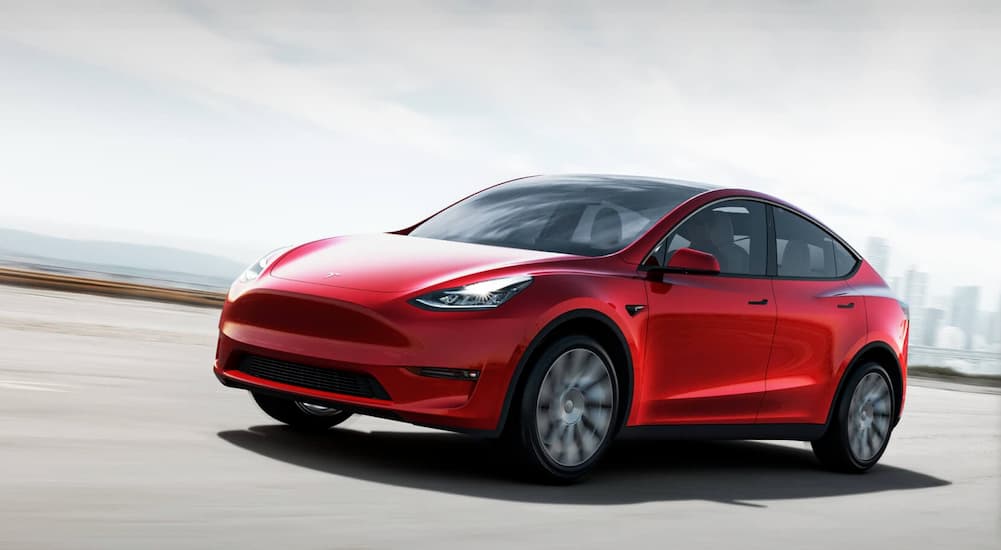
Creative Workarounds
There are still many states where you can’t buy a Tesla vehicle at a Tesla store. In some of these states, Tesla is able to operate “galleries.” These are places where you can go look at inventory in person and talk to company representatives but not make a purchase. Once you’ve found a model you like, you have to go home and order it online. In a few states, even this is going too far, and Tesla can’t have any in-person presence, including stores, galleries, and service centers.
Most people these days are used to shopping online, so this may not be a big deal for everyone. However, there can be other complications. For instance, there are some states where Tesla can deliver a vehicle to your door but can’t give you a title. You’ll have to head down to the DMV and get that sorted out yourself. And while sales can be done easily enough online, the same is not true for service.
In addition to lobbying, building galleries, and selling through its website, Tesla has been exploring other workarounds to state laws. For instance, Tesla has been able to open a store in New Mexico, where automakers aren’t legally allowed to operate dealerships or service centers, by working with the Nambé Pueblo to build on tribal land, which is outside of state jurisdiction. This allows the EV brand to offer sales and service to people living in Santa Fe without running up against New Mexico’s dealership law.
Other EV Brands Are Following Suit
Tesla’s direct-to-consumer sales model may not be the norm, but it’s no longer a singular outlier. Rivian and Lucid have followed the brand’s lead, selling directly to drivers instead of working with independent dealerships. Like Tesla, Lucid, the EV start-up behind the Air luxury sedan and upcoming Gravity SUV, owns its own stores across the country. Rather than dealerships, they’re called “studios,” and like Tesla stores, they’re often found in malls and other shopping centers. Lucid now has locations in 14 states, and some offer both sales and service. But if you look closely, you’ll find that several studios (like the ones in Plano, TX and King of Prussia, PA) have a disclaimer attached: “At this time, vehicle sales cannot take place at this location.”
Rivian’s lack of dealerships is even more extreme. While the company’s website claims that the brand will have news to share about ways to see its vehicles in person “in the coming months,” Rivian currently doesn’t have anything equivalent to the brick-and-mortar Tesla stores. If you want to buy (or, rather, “reserve”) an electric truck or SUV from Rivian, then you’ll have to do it on the website. Rivian does have several service centers located across the country, with more “in the works,” but due to various state laws, there are some significant gaps in coverage.
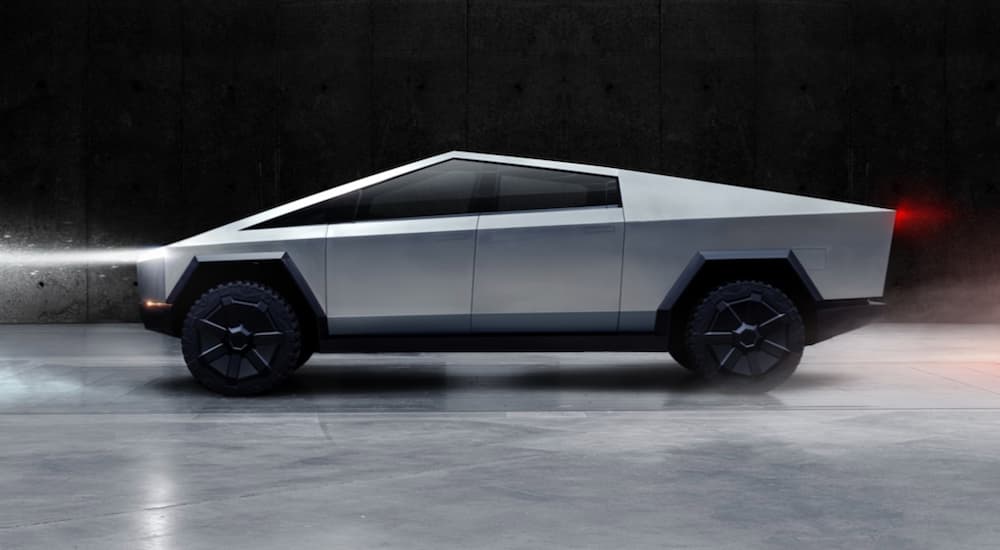
What Does This Mean for the Future of Car Sales?
For now, the Tesla sales model is a relatively small outlier that is eclipsed by the major automakers that still operate using the independent dealership system. It’s too early to predict whether Tesla’s model will be a game changer or remain an oddity. If Tesla manages to successfully lobby for dealership laws to be struck down in more states, then it’s quite possible that other automakers will take advantage of the opportunity to stop sharing profits with dealership franchises. However, the bigger automakers are likely to let Tesla take care of the process of moving fast and breaking things and wait to step in until after the dust has settled.
